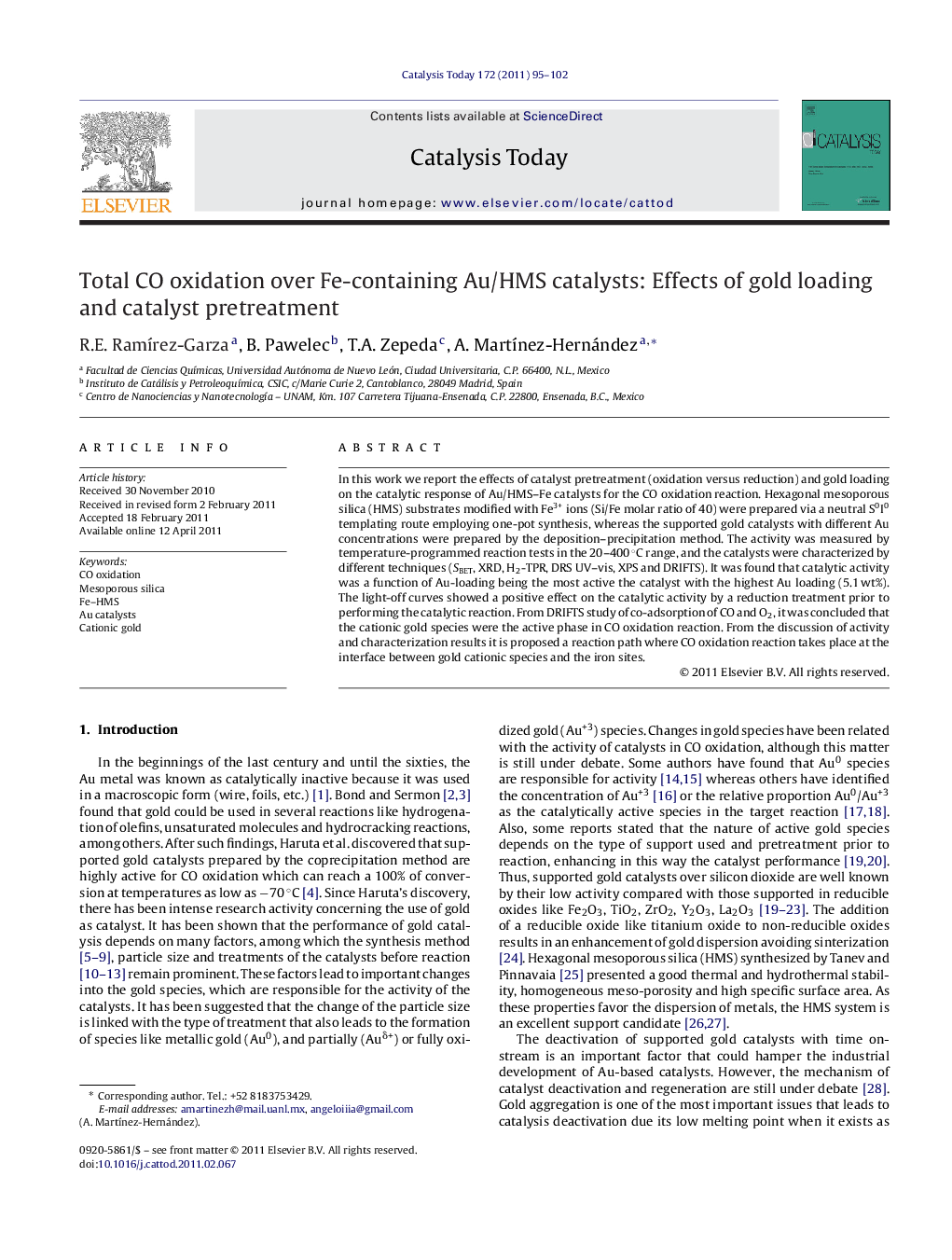| Article ID | Journal | Published Year | Pages | File Type |
|---|---|---|---|---|
| 55691 | Catalysis Today | 2011 | 8 Pages |
In this work we report the effects of catalyst pretreatment (oxidation versus reduction) and gold loading on the catalytic response of Au/HMS–Fe catalysts for the CO oxidation reaction. Hexagonal mesoporous silica (HMS) substrates modified with Fe3+ ions (Si/Fe molar ratio of 40) were prepared via a neutral S0I0 templating route employing one-pot synthesis, whereas the supported gold catalysts with different Au concentrations were prepared by the deposition–precipitation method. The activity was measured by temperature-programmed reaction tests in the 20–400 °C range, and the catalysts were characterized by different techniques (SBET, XRD, H2-TPR, DRS UV–vis, XPS and DRIFTS). It was found that catalytic activity was a function of Au-loading being the most active the catalyst with the highest Au loading (5.1 wt%). The light-off curves showed a positive effect on the catalytic activity by a reduction treatment prior to performing the catalytic reaction. From DRIFTS study of co-adsorption of CO and O2, it was concluded that the cationic gold species were the active phase in CO oxidation reaction. From the discussion of activity and characterization results it is proposed a reaction path where CO oxidation reaction takes place at the interface between gold cationic species and the iron sites.
Graphical abstractFigure optionsDownload full-size imageDownload high-quality image (110 K)Download as PowerPoint slideHighlights► Catalytic performance of Au/HMS–Fe increases as Au loading in the catalyst is increased. ► The catalyst treatment improves the activity, but reduction was best than oxidation. ► The reduction treatment favors formation of Au cationic species, suggesting that these are essential to attain high activity. ► Adsorption of carbonate species on the interface of non-stoichiometric iron oxide and cationic gold deactivates the catalyst.
